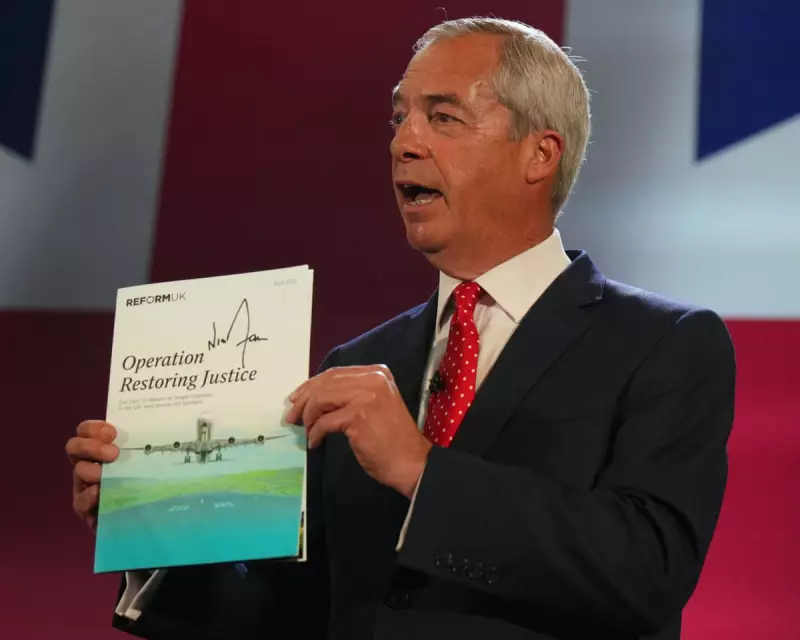
An explosive new analysis has laid bare the monumental financial and moral price tag attached to Nigel Farage's controversial plan for mass deportations, revealing a potential cost to the British taxpayer exceeding £17 billion.
The Reform UK leader's proposal, a cornerstone of his party's immigration policy, targets the removal of hundreds of thousands of individuals who have arrived in the UK via irregular routes since 2018. However, experts are sounding the alarm, branding the scheme not only prohibitively expensive but also a clear violation of the UK's international legal obligations.
The Staggering Financial Burden
According to a detailed assessment seen by The Guardian, the plan would trigger an economic crisis of its own making. The eye-watering estimate includes:
- £6.5 billion for a vastly expanded and logistically nightmarish detention system.
- £4.5 billion in direct removal costs, including chartered flights and enforcement.
- £6 billion in lost economic output and tax contributions from the removed workforce.
"This isn't a policy; it's an act of economic self-harm," stated one leading economist. "The government would be actively choosing to impoverish the nation by expelling a significant number of people who are already integrated and working, all while spending billions to do it."
A Moral and Legal Quagmire
Beyond the balance sheet, the plan faces an insurmountable wall of legal and ethical challenges. Legal scholars point out that the UK is a signatory to the 1951 Refugee Convention, which explicitly prohibits the return of individuals to countries where they face persecution.
"The proposal is fundamentally at odds with the rule of law," said a professor of human rights law. "A blanket deportation policy without individual assessment of each claim is unlawful. It would isolate Britain on the world stage and trigger a barrage of successful legal challenges."
Charities and advocacy groups have condemned the rhetoric surrounding the plan, warning it dehumanises vulnerable people, including those fleeing warzones and political violence, and risks inflaming social tensions.
The Political Gamble
Despite the overwhelming evidence against its feasibility, the policy remains a central rallying cry for Farage. Political analysts suggest it is a calculated gamble to attract voters disillusioned with the Conservative Party's record on immigration.
However, the practical reality of locating, detaining, and removing such a vast number of people is described by former Home Office officials as "operationally impossible," requiring a state apparatus on an unprecedented scale.
As the debate intensifies, the country is left to ponder a critical question: is the colossal financial expense and the profound damage to Britain's global reputation a price worth paying for a policy that may never be implemented?





